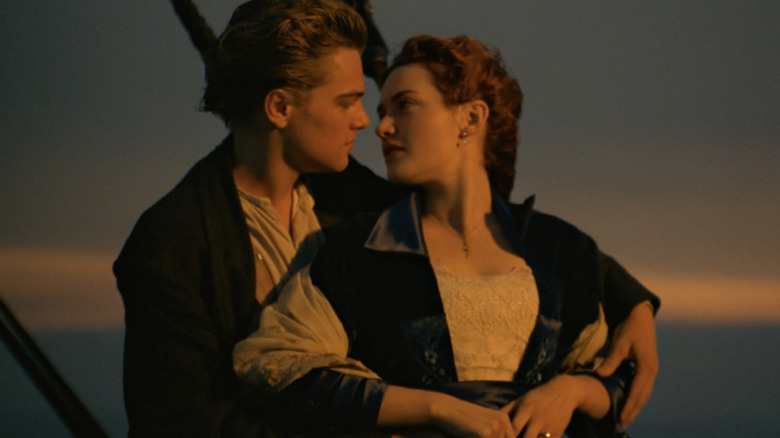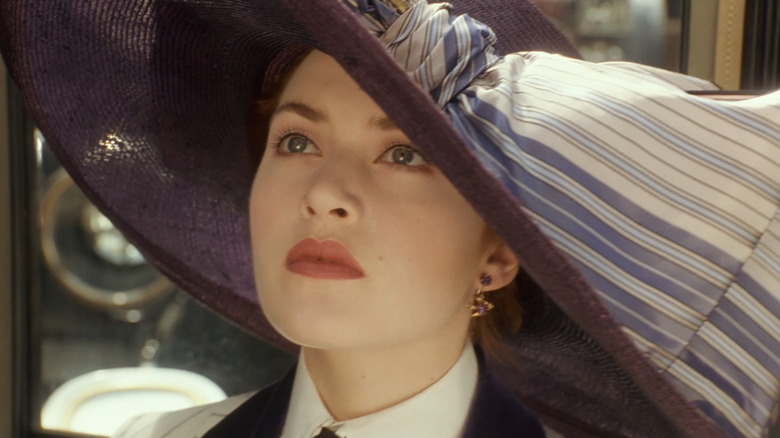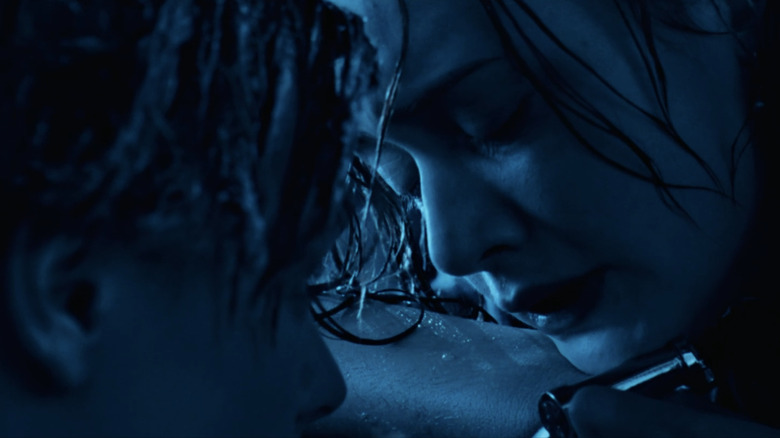The Daily Stream: Are You Ready To Go Back To Titanic?
(Welcome to The Daily Stream, an ongoing series in which the /Film team shares what they've been watching, why it's worth checking out, and where you can stream it.)
The Movie: "Titanic"
Where You Can Stream It: Prime Video, Paramount+
The Pitch: I feel a little silly trying to give you the gist about the romantic epic to end all romantic epics, but I will give it a go. "Titanic" tells the story of the doomed romance between Rose (Kate Winslet) and Jack (Leonardo DiCaprio) aboard the infamous titular luxury ship that sank on April 15, 1912.
Rose is a woman of Philadelphia's old money upper crust, stuck in a restrictive patriarchal society and under the thumb of a loveless, cruel fiancé (Billy Zane). Jack is a self-described "tumbleweed blowing in the wind" — a poor, young artist looking for whatever the next adventure is. They meet and fall in love, but their love cannot last, as the "unsinkable" ship hits an iceberg and, y'know, sinks. James Cameron's masterpiece is the epitome of what large scale Hollywood moviemaking can be, all the bells and whistles blended perfectly with the grandest emotion. I mean ... it's "Titanic."
Why it's essential viewing
When you become the highest grossing film of all time (which "Titanic" was until James Cameron's next epic, "Avatar," overtook it), you're bound to have a fraught cycle of reception. Initially, this film was a sensation, adored by audiences and critics alike and winning a still record 11 Academy Awards. Any film that receives that kind of reception is bound to get some swift, fierce backlash. In the 25 years since its release (cue "It's been 25 years" joke), its reputation has risen and fallen as often as the tide. How you react to "Titanic" depends almost entirely on one thing: how much cynicism do you approach movies with?
The reason I put it like that is because "Titanic" is a completely sincere, broadly painted film. This is not some complex story dealing with psychology, puzzles, or deconstructing genre. No, this is hokum, which I do not mean derogatorily in the slightest. We are dealing with personality-driven archetypes on the largest canvas money can buy. Jack and Rose's love story has to be as strong as the nearly 900-foot liner it plays out on. Why do Jack and Rose love each other? Well, they do because love is so powerful that they must succumb to it. If you are someone overly concerned with logic, then "Titanic" will simply play as nonsense.
But if you are someone willing to open yourself up to be emotionally driven by a picture, then "Titanic" earns is place as the modern classic that it is. James Cameron knows precisely how to harness the hearts of his viewers and play them like fiddles. A true maximalist, he understands that all you need to invest in all of this is through true visceral filmmaking of the highest order. He understands large-scale spectacle almost better than any filmmaker alive and perfectly knows how to mint movie stars. Jack and Rose's courtship is as grand as the ship sinking into the Atlantic. Without that, the tragedy of the fate of their love would feel empty. Instead, it feels like the most important thing in the world while you are watching it.
When movies felt big
Cinemas are inundated with movies that regularly cost hundreds of millions of dollars, yet none of them feel as absolutely massive as "Titanic." You could have a scene of a monster attacking a city or characters jumping through different universes, but all of them feel like they were all shot on an 800 square foot parking lot in Atlanta. There's no grandeur to any of it.
Cameron packs every frame with as much as he can. Where this is most noticeable is with his use of background performers (or extras). The actual Titanic was packed with people, so he enlists the help of hundreds of individuals to give you a sense of true pandemonium and destruction when the boat starts sinking. By seeing so many people meet horrific fates, you feel like this is one of the greatest tragedies in human history.
But the film's scale is not just saved for its exhilarating, visual effects-driven second half. No, the scale also comes from the film's production design, where every room on the Titanic looks like it has the budget of one Sean Baker film. Every chair, every table, every bed spread looks like it was handmade for this film (and given its ample resources, they probably were). The film takes place in richly detailed and impressive environment, and that alone makes it feel massive, let alone seeing all of that fine detail get destroyed later in the film. That goes to show you its budget, though.
Yes, a lot of "Titanic" involved the use of blue screens and digital effects, but every frame of the film could not be more tactile, making the whole scope of the picture even more impressive. If something looks to be handmade, it will have an identity that not only makes it seem more impressive but anchors you directly into the story. For however broadly the film deals in emotion and character, it never becomes weightless because of how deftly James Cameron wrangles his gigantic scale.
The original theatrical run of "Titanic" was nearly a year long. People would return to the film over and over again because it sent them on an emotional high and delivering pure spectacular filmmaking few other films could provide. A quarter of a century later, "Titanic" is just as titanic as it ever was in every sense of the word. If you have not revisited it in awhile, do yourself a favor and dive back in. If you somehow have managed to avoid "Titanic," you have an absolute treat waiting for you.
Last note: Victor Garber is the film's MVP. No question. What a performance.


